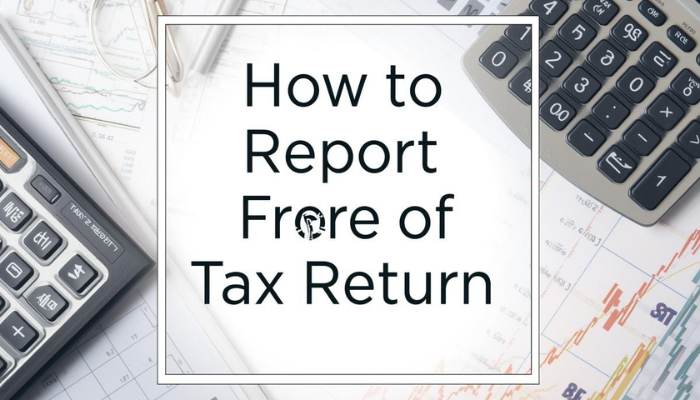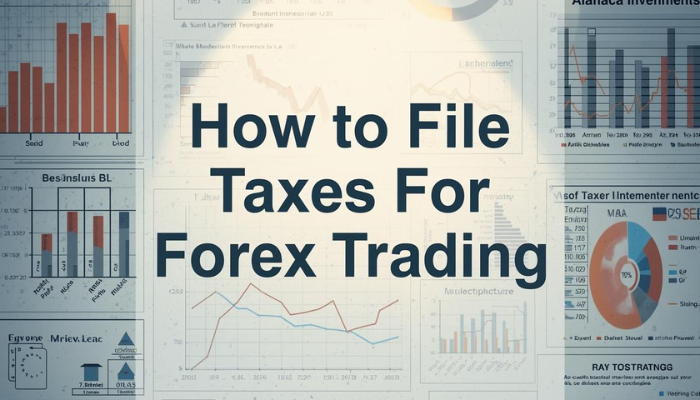Are Financial Advisors Worth It?
Investing in seeking professional help to scrutinize your business’ financial matters is better than DIYing. But are financial advisors worth it? Is it easy to find reliable experts, such as core tax and financial advisors, to uplift budgetary circumstances and achieve professional targets?
Besides, this passage of time leading towards advancements is a gateway to more conveniences, demanding a carefree abundance of wealth to spend strategically. This blog post sheds light on all such matters to provide you with a clear and concise roadmap with its pros and cons for the efficient management of the financial situations of your organization.
Financial Planner vs Financial Advisor
Before hiring adept expertise for the accounts management of your business, it is crucial to learn the fundamental distinguishing factors between financial planners and financial advisors.
Financial advisors aim to meet customized objectives by planning goals based on small yet consistent steps. A few common goals are:
- Children’s higher education fees
- Retirement plans
- Buying a new house
- Starting a business

On the other hand, the services offered by financial planners are narrowed down to a particular niche. If you’re looking for specified improvements in a few monetary areas, it is recommended to hire financial planners.
In the case of long-term economic projects, a trustworthy financial advisor with a certified financial planner (CFP) would be the best choice for the improved sustenance of the financial reputation of your company.
Becoming a CFP requires qualifying for specific courses and an exam and demonstrating a complete obligation to specific ethical codes and standardizations enforced by your state’s board of CFP. It also demands absolute adherence to fiduciary duty for you to practice prioritizing your client’s best interests.
Step By Step Guide: Are Financial Advisors Worth It?
Each small or large-scale business is distinctive in its financial matters and the planned strategies to enhance positive net worth. These unique circumstances make you wonder if financial advisors are worth hiring.
In case your business is on the verge of collapsing, such unfortunate times require you to hire advisors with certified financial planners’ expertise. On the other hand, if you enjoy experimenting with and researching the best products for your needs, you may not need to invest in employing expert accounts managers.
Typically, there are three ways in which you can pay the financial advisors. Their fee depends on the years of experience and credentials the professionals possess.
Click here to read ‘How to Become a Tax Advisor?‘.
The type of budgetary circumstances and the level of expertise financial advisors offer is their doings. These are the ultimate decisive factors to whether financial advisors are worth it. If they are polite enough to stay in congruence with your goals and act in the best of your company’s interests, your investment in availing the professional services will be worth it.
Handing over the pecuniary situations of your company to reliable financial and tax advisors can cost you in the following ways:
1. Consultation Charges
Long-term projects require you to think about ‘Are financial advisors worth it or not?’ so you can hire them for a consultation to work and plan the strategies targeting to improve the financial integrity of your firm while minimizing the burden of payable tax to the Internal Revenue Service (IRS). As a business owner, you must pay either a flat fee or a percentage of assets under management.
2. Hourly or Project Charges
Like consultation charges, financial advisors may demand a flat fee or a specific amount per hour worked on the project. For one-time projects, it is suggested to pay according to hourly or project basis.
3. Commissions
Suppose the financial advisor serves as a mediator or broker between you and the service provider. In that case, a successful agreement will make him earn a percentage of the paid amount as his commission.
Advantageous Investments: Are Financial Advisors Worth it?
Being a non-specialist, you and your working personnel may need more expertise to face the financial challenges imposed by your state’s authorities. Hiring professional financial assistance to safeguard your business’ wealth can benefit you in the following ways:
- After observing your business’s obstacles, financial advisors strive for professional independence to build maximum yet legitimate wealth so you can be free of tax liabilities and qualify for audit sessions conducted by the Internal Revenue Service (IRS).
- They help you to be repellent towards financial detours by offering you a valuable sounding board.
- Improvising a comprehensive and streamlined procedure to safeguard your earnings offers consistent implementations and check-ins throughout the journey.
- They ensure the provision of a complete sense of tranquility while handling the fluctuating financial conditions of your company on your own.
Go to ‘How to Become a Tax Consultant?‘ for information.
Should I invest with a financial advisor?
Determining your financial situation, goals, and preferences when making this important decision, many variables come into play when making this determination. Here are a few aspects you need to take into consideration before forming this opinion:
Financial Advisors Can Provide Expertise and Guidance:
Advisors offer expertise tailored to meet the financial goals and circumstances of individual clients, helping create comprehensive plans, investment strategies, and guide complex financial decisions with ease.
Time and Resources:
If you don’t have the knowledge, time or confidence necessary to manage your investments effectively on your own, hiring a financial advisor could provide invaluable support and save time by managing research, analysis and monitoring on your behalf.
Financial Advisor Provide an Objective Perspective:
Working with a financial advisor provides you with an impartial, third-party viewpoint of your finances and investment options, helping to prevent emotional decisions or biases from leading to poor investment decisions.
Cost Considerations:
Before engaging a financial advisor, it’s essential to assess all associated fees and expenses associated with working together; carefully weigh these benefits against costs involved with working with an advisor.
Self-Directed Options:
If you prefer taking control of your investments directly and have both the time and knowledge needed to effectively oversee them yourself, self-directed options could be right for you. Without needing financial advisor advice for guidance, this type of investing allows more autonomy.
Deciding whether to invest with a financial advisor should depend entirely upon your own individual preferences, needs, and level of comfort with managing finances. Consult several advisors to evaluate which services fit your goals and objectives best.
The Rising Value of Hybrid and AI-Driven Advisory Models
In 2025, one of the most compelling reasons a financial advisor might be worth the cost is the rapid adoption of hybrid advisory models. It combines human expertise with AI-powered tools.
Modern advisory firms are increasingly using behavioral analytics to detect emotional biases in clients and employing predictive models to tailor advice in real time.
This kind of technology-enhanced personalization allows for more proactive planning for life transitions like:
- Retirement
- Career changes
- Selling a business
It makes the advisor more than just a portfolio manager.
Simultaneously, underlying cost structures are shifting. Traditional human advisors charging 1% annually are being challenged. Alternatives such as flat-fee planners, hybrid advisors, and AI-assisted platforms now deliver comparable, often superior, planning for a fraction of that fee.
For certain investors, this more flexible fee model means you can pick only the services you need — whether it is:
- Tax strategy
- Retirement withdrawals
- Estate planning
Psychological and Strategic Edge: Beyond Returns
Beyond portfolio returns, working with a qualified financial advisor offers significant psychological and strategic benefits. Research shows that clients with human advisors not only feel more confident about retirement but also stay more disciplined with their long-term financial goals. An advisor:
- Offers accountability
- Avoids emotional pitfalls during market stress
- Brings objectivity to big decisions
Furthermore, the advisory industry itself is growing rapidly, indicating sustained demand for expert advice. The global financial advisory market is projected to reach over $115 billion in 2025, with widespread adoption of AI, client portals, and digital tools across firms.
This signals that professionals who blend traditional wisdom with technological innovation are increasingly valued. Paying for an advisor can be an investment in structured, long-term financial resilience, not just an expense.
Is a Financial Advisor Worth it in Retirement?
Navigating retirement demands beyond large nest eggs. You need a sophisticated ‘decumulation’ strategy. Saving is linear but spending is complex due to sequence of returns risk – the danger of a market downturn occurring just as you begin withdrawals. A financial advisor is worth it because these professionals:
- Shift focus from growth to sustainable income.
- Implement dynamic withdrawal rules.
- Optimize tax-bracket management to stretch your portfolio’s longevity.
SECURE 2.0 Act provisions are now in full effect. An advisor assures that you capitalize on updated RMD ages and modified catch-up contributions. They create a strategic bridge between your assets and a lifelong paycheck.
Conclusion
Isolation is one of the few companions that comes with old age. Naturally, leaning towards dependence on your family members is another limiting factor to enjoying those days nonchalantly. Therefore, while being fit enough to ponder ‘Are financial advisors worth it?’ or not, it is paramount to financially secure your retirement days as the global economic conditions aren’t amicable to anyone.
Read More:


